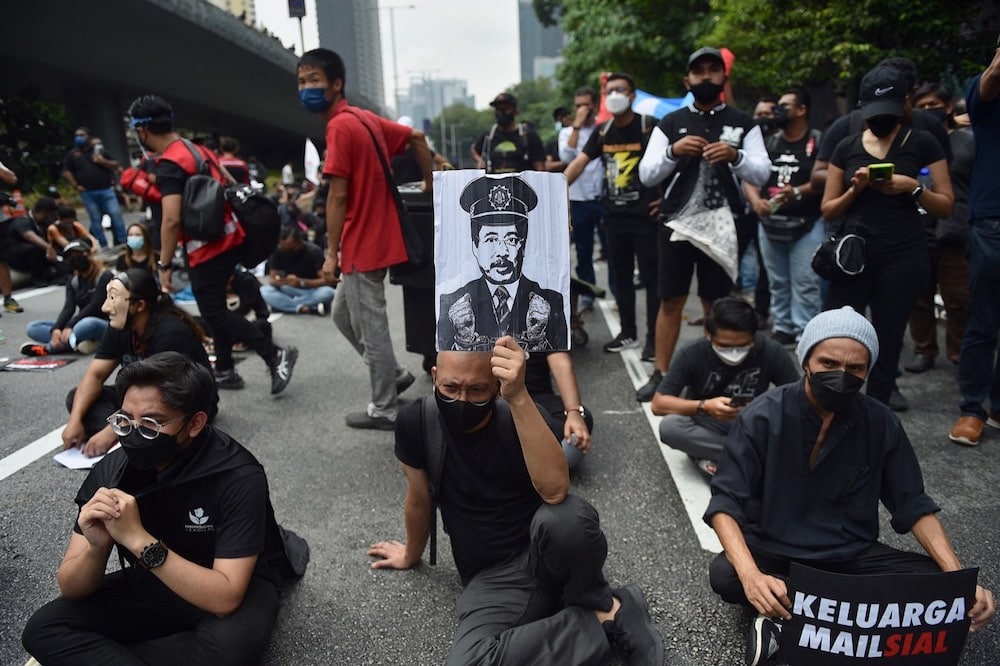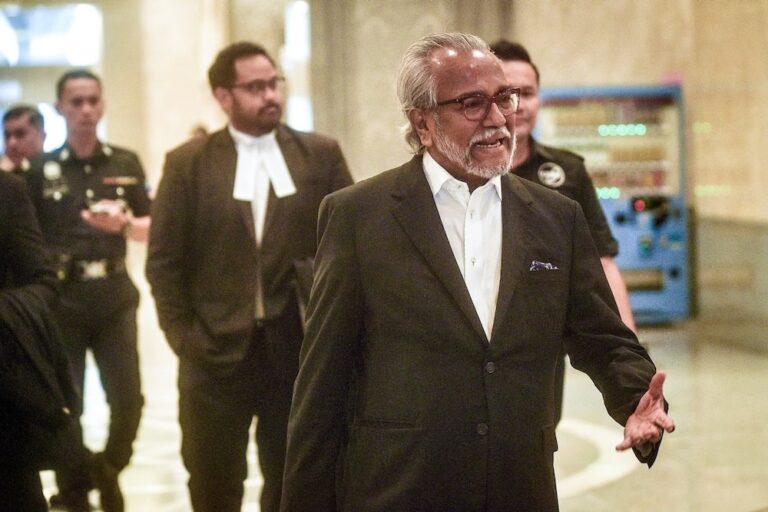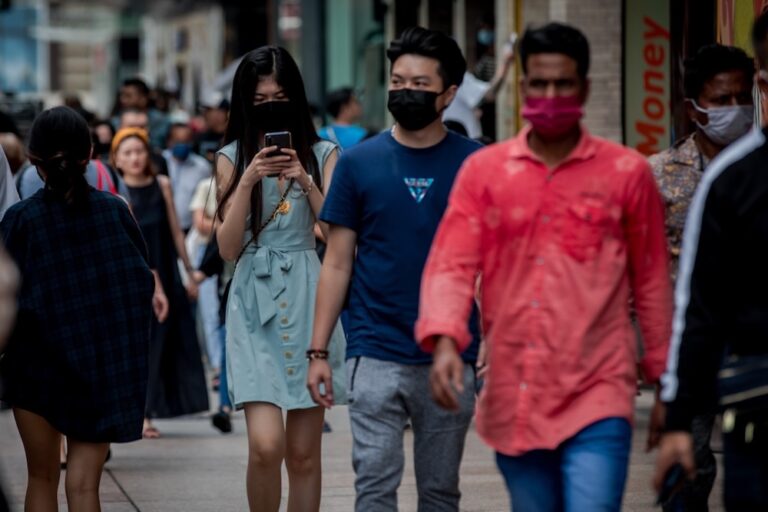A new report by the Centre for Independent Journalism highlighted that the media continued to experience restrictions and came under attack numerous times in 2022. It urged the new government led by Prime Minister Anwar Ibrahim to commit to upholding the people's fundamental and constitutional right to information, freedom of expression, speech, association and assembly.
This statement was originally published on CIJ Malaysia’s Facebook page on 10 December 2022.
In conjunction with International Human Rights Day 2022, the Centre for Independent Journalism (CIJ) is honoured to celebrate and recognise the many achievements of activists and human rights defenders in protecting and defending human rights, particularly relating to Freedom of Expression (FoE).
Human Rights Day is commemorated globally on 10 December every year to honour the United Nations General Assembly’s adoption and proclamation of the Universal Declaration of Human Rights (UDHR) on 10 December 1948.
Today, we honour the effort, persistence and courage, and acknowledge the challenges of exercising our rights by releasing CIJ’s Report on the State of Freedom of Expression (FOE) in Malaysia 2022. This report documents cases of how repressive laws were used to curtail the right to speech, expression and assembly in our country.
This rather tumultuous year continued with the repercussions of new political manoeuvrings, increase in restrictions and criminalisation of expressions in various forms, and culminated in the dissolution of parliament.
Throughout 2022, CIJ has observed and monitored an increase in the usage of oppressive legislation, such as the Sedition Act, the Communications and Multimedia Act, Peaceful Assembly Act 2019, Sections 298A, 500, 504 and 505 of the Penal Code, amongst others, to silence dissenting opinions and expressions. Civil Society Organisations (CSOs) have also observed the suspension or derogation of our fundamental human rights in the name of national security, public order, public morality and sovereignty. We have noted incidents where defamation laws were used against the media as part of Strategic Litigation against Public Participation (SLAPP).
Netizens, media, human rights defenders (HRDs), opposition politicians, students and artists came under investigation for various forms of expression and speech.
Key cases included Fahmi Reza, a satirical graphic artist and political activist who continued to be probed in 2022 for his work, and Lalitha Kunaratnam, a Malaysian independent investigative journalist who exposed the alleged corrupt practices of Malaysian Anti-Corruption Commission (MACC) Chief Commissioner Azam Baki. Lalitha was sued by Azam Baki for RM10 million in January on the grounds of defamation. She was also investigated by the authorities under Section 233 of the Communications and Multimedia Act 1988.
We saw limited spaces of expression for students as well as shrinking of spaces for protest and peaceful assembly. Organisers and participants of various protests and rallies in Malaysia this year continued to be investigated under the Peaceful Assembly Act 2012, Section 505(b) Penal Code, and the Prevention and Control of Infectious Diseases Regulations 2021.
Stifling of expression and speech on the basis of religion is also on the rise with the increasing use of Section 298A of the Penal Code for allegedly causing disharmony, disunity, or feelings of enmity, hatred or ill will, or prejudice, on the grounds of religion. Individuals are dehumanised and prosecuted for expression on the grounds of race, religion and royalty.
Media also continued to experience restrictions and came under attack numerous times in 2022. CIJ reiterates that the use of authorities and laws in questioning reporters for doing their job is a form of scare-tactic in restricting the media from doing investigative journalism pieces, which are essential for public knowledge. This in turn would reinforce media censorship.
CIJ is also alarmed with the ongoing anti-LGBT agenda and criminalisation on the basis of sexual orientation and gender identity. Increase in censorship, raids and arrests is detrimental as it shrinks the space for expressions and dehumanises individuals and communities on the basis of their sexual orientation and gender identity.
The 15th General Elections was also another game changer in the context of freedom of expression. Politicians and other key actors weaponised inflammatory tropes and rhetoric to control narratives and advance narrow political interests by influencing public understanding around issues like race, religion, royalty, sexual orientation and gender identity. CIJ’s Social Media Monitoring, with various other partners, during the 15th General Elections saw an amplification of toxic narratives and hate speech on this basis.
Anwar Ibrahim as the new prime minister and his unity cabinet gives Malaysians a certain level of optimism that priorities will be placed on institutional reforms in order to curb corruption and strengthen the promotion of our human rights.
In the spirit of International Human Rights Day, we urge the government to commit to upholding our fundamental and constitutional right to information, freedom of expression, speech, association and assembly.
In this regard, we urge the State to guarantee and adopt the following without delay:
- Create a safe environment for robust civic discourse and healthy democracy for all and refrain from using scare-tactics and arbitrary applications of repressive laws to sanction and intimidate those who criticise, question or belittle the government.
2. Initiate a comprehensive legislative reform in accordance with Malaysia’s international human rights obligations, and amend or repeal:
- Sedition Act 1948,
- Communications and Multimedia Act 1998,
- Peaceful Assembly Act 2019,
- Official Secrets Act (OSA) 1972,
- Printing Presses and Publications Act (PPPA) 1984,
- Section 203A of the Penal Code,
- Section 298A of the Penal Code,
- Section 114A of the Evidence Act (Amendment) (No.2) 2012,
- National Film Development Corporation (Finas) Act 1981,
- Other problematic defamation and national security-related provisions under the Penal Code.
3. Promote a progressive information regime and open governance by enacting a Right to Information (RTI) law.
4. Ratify all outstanding international human rights treaties and its optional protocols.
5. Create an enabling environment for the media to function with independence and with no fear of repercussion for carrying out their reporting functions.
6. Move ahead with the establishment of the Malaysian Media Council (MMC) as a transparent and independent self-regulatory body for the industry by adopting the work of the Protem Committee set up in January 2020.
7. Set up an independent multi-stakeholder commission to review the root causes of hate speech and to develop recommendations to combat hate speech in line with international standards, including the UN Rabat Plan of Action.



